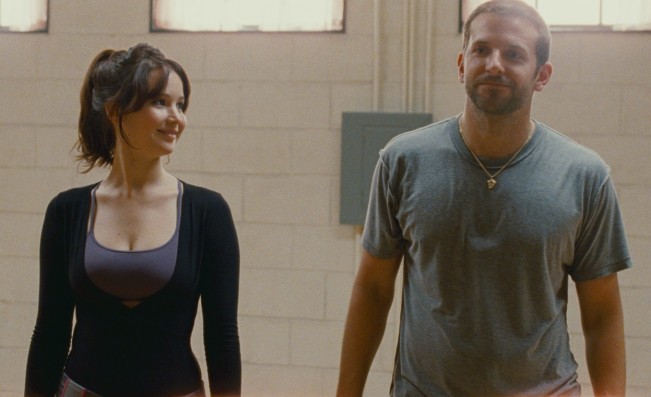By Jake Howell jake.howell@utoronto.ca
The Torontonian Reviews: The Silver Linings Playbook
The people have voted: David O. Russell’s The Silver Linings Playbook is the most popular film of TIFF 2012. Behind it is Ben Affleck’s Argo and Eran Riklis’ Zaytoun; taking second and third place, respectively. Written and directed by O. Russell, The Silver Linings Playbook is an above average romcom given a dash of seriousness with its discussion of mental illness and family fighting.
 Recently released from a mental institution, Pat (Bradley Cooper) begins a quest to rekindle his marriage with Nikki, a woman who has since obtained a restraining order. After a brief set-up to show Pat’s father (Robert De Niro) is just as mentally ill as his son, Tiffany (Jennifer Lawrence) joins the fun to explain she has ties with Nikki, and is willing to act as Pat’s personal messenger service.
Recently released from a mental institution, Pat (Bradley Cooper) begins a quest to rekindle his marriage with Nikki, a woman who has since obtained a restraining order. After a brief set-up to show Pat’s father (Robert De Niro) is just as mentally ill as his son, Tiffany (Jennifer Lawrence) joins the fun to explain she has ties with Nikki, and is willing to act as Pat’s personal messenger service.
It’s soon revealed that Tiffany’s personality is just as tempestuous as Pat’s, and the pair forge a friendship as the Manic Pixie Dream Team. Soul-mates in denial, the two are like elevators; opening themselves to others before zooming up and down emotionally (though rarely plummeting to the basement sub-floors). The majority of the laughs occur whenever the script invokes their unstable bond, flirting via off-color dialogues and knee-jerk confessions.
Maybe I’m expecting more than I should from a romantic comedy, but there appears to have been a legitimate attempt by O. Russell to make Playbook something greater than your standard heart-warmer starring a shirtless Matthew McConaughey. Playbook is certainly “better” than that sort of film, but the stakes are low and the problems don’t feel urgent. In other words, Playbook wants to be a deeper film than it actually is: despite the film’s treatment of mental health and unrequited love, the narrative here is still somehow stunningly innocuous; at times even shallow. The illnesses these characters exhibit aren’t at all dangerous, and the few breaks in composure – the “snaps” that do go south – still have a blinding sheen of positivity and cutesiness that overrides any sense of emergency. The intriguing chaos of the film’s first half devolves to blandness, as Playbook’s emotional parabola never dips very far below the y-axis. O. Russell’s narrative simply doesn’t test the tensile strengths of the Hollywood safety nets.
The Silver Linings Playbook isn’t at all a bad film – it’s just by-the-numbers. Thankfully, there’s plenty of shiny gloss to help viewers overlook these flaws, as the production values are higher than most outings in the genre. To its credit, much of the film is entertaining and well-acted (Jennifer Lawrence in particular), and there’s even some excellent cinematography that zooms in and out with refreshing clarity. It also doesn’t hurt that Cooper and Lawrence are beautiful human beings. Unfortunately, there’s something holding this film back from being truly memorable, and it’s a shame that Playbook is only “pretty good”. Though initially quite promising, the film takes very few risks; eventually falling prey to expectations and perhaps laziness (the final reel goes off the rails with predictable conventions and silly genre tropes). The film will assuredly please crowds and win hearts in the end—perhaps even Oscar’s—but audiences interested in something more complex should probably look elsewhere.















